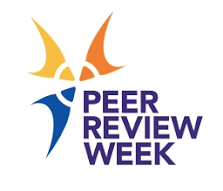Peer/Content Review: the Q&A
What is peer/content review?
✒ Peer review is the refereeing work done by subject matter experts during the screening of research manuscripts. Also called content review. 👀
When is content review done?
Post-publication review (auditing) focuses on identification of flaws, significance of findings, impact of the research, and reproducibility of methods. 📊
It can lead to withdrawals or retractions of published papers. 👮
Today, I'll talk about pre-publication review, which analyses quality of research design, rigour of data collection and interpretation, and novelty of the research findings. 🔍
It usually ends with a recommendation to the editor, either to accept for publication, minor revisions, major revisions, or reject.
Why should content review be performed?
It reduces the dissemination 🛂 of:
- irrelevant findings,
- unwarranted claims,
- unacceptable interpretations,
- and personal views.
This process encourages authors to meet the accepted standards
of their discipline.
In Medicine ㊩, for instance, reporting guidelines have been adopted by the majority and most respected publications in the field. Therefore, content also needs to adhere to this specific way of being presented.
How is content review performed?
I favour the 4-step method:
Broad read through 👀
Focusing on the essential 3: title, keywords, and abstract.Figure captions and tables are also perused.First detailed read 👓
Pointing out major problems, contradictions, and omissions.Also identifying main strengths, and commenting on structure, quality, originality, readability, and revision suggestions (if any).Second detailed read 🔍
Noting small issues, inconsistencies, structural/grammatical issues, and references.Write review report 📖
Highlighting areas for improvement, and providing summary and impact statements.
AI can't really do this, as it requires critical thinking and originality.
If you would like to know more about content review, and how I can increase your chances of publication, contact me.
I'll be posting daily here during Peer Review Week, this year from 25th to 29th September.





Comments
Post a Comment